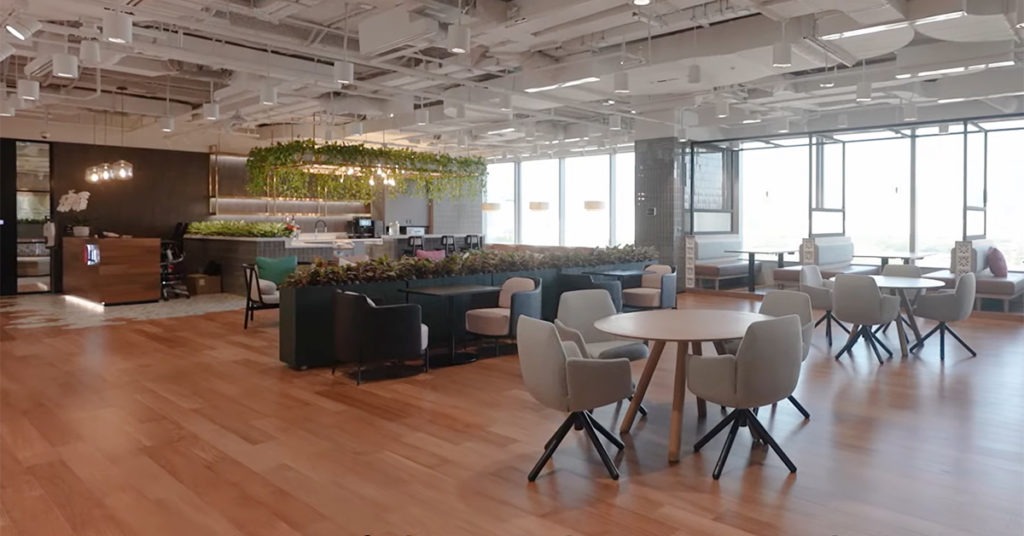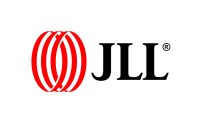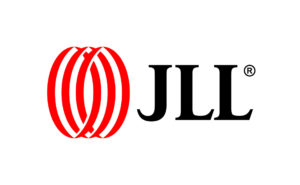
Companies’ post-pandemic workplace strategy continues to evolve
Flight to quality dominates demand in the Bangkok office market
Bangkok, 13 October 2022 – In the aftermath of the pandemic, companies are rethinking their office spaces and how to attract employees back. While many are rightsizing their offices for higher efficiency, others are upgrading their spaces and investing more in creating a workplace that aligns to new ways of working and support their employees’ health and wellbeing and their sustainability goals. These represent the key trends that are shaping demand in the Bangkok office market, according to real estate consultant JLL.
Michael Glancy, Country Head of JLL, says “The shift to hybrid work has become a marker of change in the workplace. New ways of flexible working mean that many occupiers may not need the same size of office as in the pre-COVID time. However, the consensus is that the office is here to stay and will continue to be instrumental in providing a space for employees to collaborate, interact and unite around shared values, boosting staff morale, enhancing productivity and achieving sustainable growth.”
According to JLL’s global Future of Work Survey, 72% of decision makers believe the office is critical to doing business. Results from the survey also show that companies are placing greater emphasis on how they can support employees’ wellbeing and maintain productivity and ensure the office remains central to their work ecosystem.
Results from the survey showed that 74% of the respondents say their companies are likely to pay a premium for green credentials. In Bangkok, demand from occupiers to relocate into sustainable buildings is on the rise, within the past 12 months 54% of new leases within Bangkok were in buildings with green certificates.
Additionally, the findings indicated that 80% of organisations in Asia Pacific agree that quality space is a top priority as high-quality spaces are best suited to facilitate the kind of workplaces, health and wellbeing amenities, and sustainability credentials that employees and corporates increasingly need.
Implications to demand in the office market
Rightsizing
Since the pandemic, many companies have been trying to figure out how to potentially rightsize and / or consolidate their offices. A Common reason behind rightsizing has been to optimize the occupancy costs and to increase the efficiency of the space to meet the needs of modern working practices.
Thananun Ruengveeravich, Head of Office Leasing Advisory at JLL, says “In the previous decade, 10 sq.m. per employee were perceived to be the most suitable office density. But today, we have seen occupiers require less space per employee. Having said that, there is no one-size-fits-all, when it comes to rightsizing. Each company needs to have their own tailored real estate strategy to meet the businesses vision, and some may actually need to stay the same size or even grow to do this” says Mr. Thananun.
“By incorporating an activity-based strategy in the office design, a lot of these companies can provide more spaces for communal use such as collaboration, socializing, focused works (i.e. quiet rooms and phone booths) and wellness (i.e. mother’s room and meditation/relaxation room),” he explains.
Green Offices & Partnerships with Landlords
A growing number of companies are taking action on their commitments to sustainability and net-zero carbon emissions, of which the built environment has a huge part to play. As a result, green-certified buildings are becoming a more favorable choice for occupiers as they complement their decarbonization journey.
“There is growing demand from multinational businesses to relocate into green certified buildings that will support their sustainability ambitions. Based on enquires that we have received so far this year, 3-5 out of 10 international corporations looked to secure space in a sustainability certified building where they would relocate their office, comparing to 1-2 out of every 10 enquiries that we received three years ago,” says Mr. Thananun.
Companies see their next office move as vital to meeting their long-term sustainability targets, as most occupiers will stay in their office for more than 12 years on average. Hence the next relocation will need to meet their 2030 Environmental, Social and Corporate Governance (ESG) targets. Occupiers’ needs are rising to meet these targets and are actively seeking to partner with Landlords who can support their journey. Green accreditation is only the first step of some occupiers’ ESG needs; there is a growing demand amongst occupiers to know the details of the waste management, energy efficiency and sustainable sourcing of the building that they occupy.
Flight to quality
Businesses that aspire to attract employees back to the office need to consider investing in the real estate and people engagement activities to make it a destination that people want to go to. There is a growing flight to quality trend in Bangkok as companies plan to create a new way of working to retain and attract talent.
“When it comes to quality, buildings’ age counts for a lot,” says Jeremy O’Sullivan, Head of Research and Consulting. “Our latest study shows that office buildings in Bangkok aged not more than 20 years saw the average vacancy rate at 19% and the average rental at THB 816 per sqm per month at the end of the first half of 2022, while older buildings witnessed the average vacancy rate at 22% and the average rental at THB 653 per sqm per month over the same period.”
In line with Mr. O’Sullivan’s statement, Mr. Thananun says “The growing number of office relocations exemplifies the flight-to-quality trend. Based on the number of office leasing transactions that JLL has concluded on behalf of landlords and occupiers over the past three years, 35% has been relocations to higher quality buildings. This trend will become more prominent over the next few years as 1.8 million sqm of new office space will be added to the Bangkok office market. These include office spaces in large projects such as One Bangkok and Dusit Central Park that are expected to enjoy strong demand from corporations looking for premium-grade space and all amenities that will support their new ways of working and sustainability goals.”
Conclusion
Mr. Glancy says “Changes accelerated by the pandemic represent an opportunity for companies to take a step back and rethink their long-term real estate strategy and how it aligns with future business priorities. The office will continue to play a crucial role to retain and attract talent, however companies will need to continue to innovate to draw increasingly sophisticated employees back to the office amidst the growing popularity of hybrid work post-COVID.”
“On the other end, occupiers’ flight to quality and the need for flexibility, coupled with a strong pipeline of new office supply, will put pressure on landlords with secondary-grade or aging office buildings to be creative and proactively engage the market to retain and attract Tenants. This could entail strategically investing in buildings to upgrade the specifications and provide the amenities that will meet tenants’ needs,” he says.
Explore what the future of work looks like.



